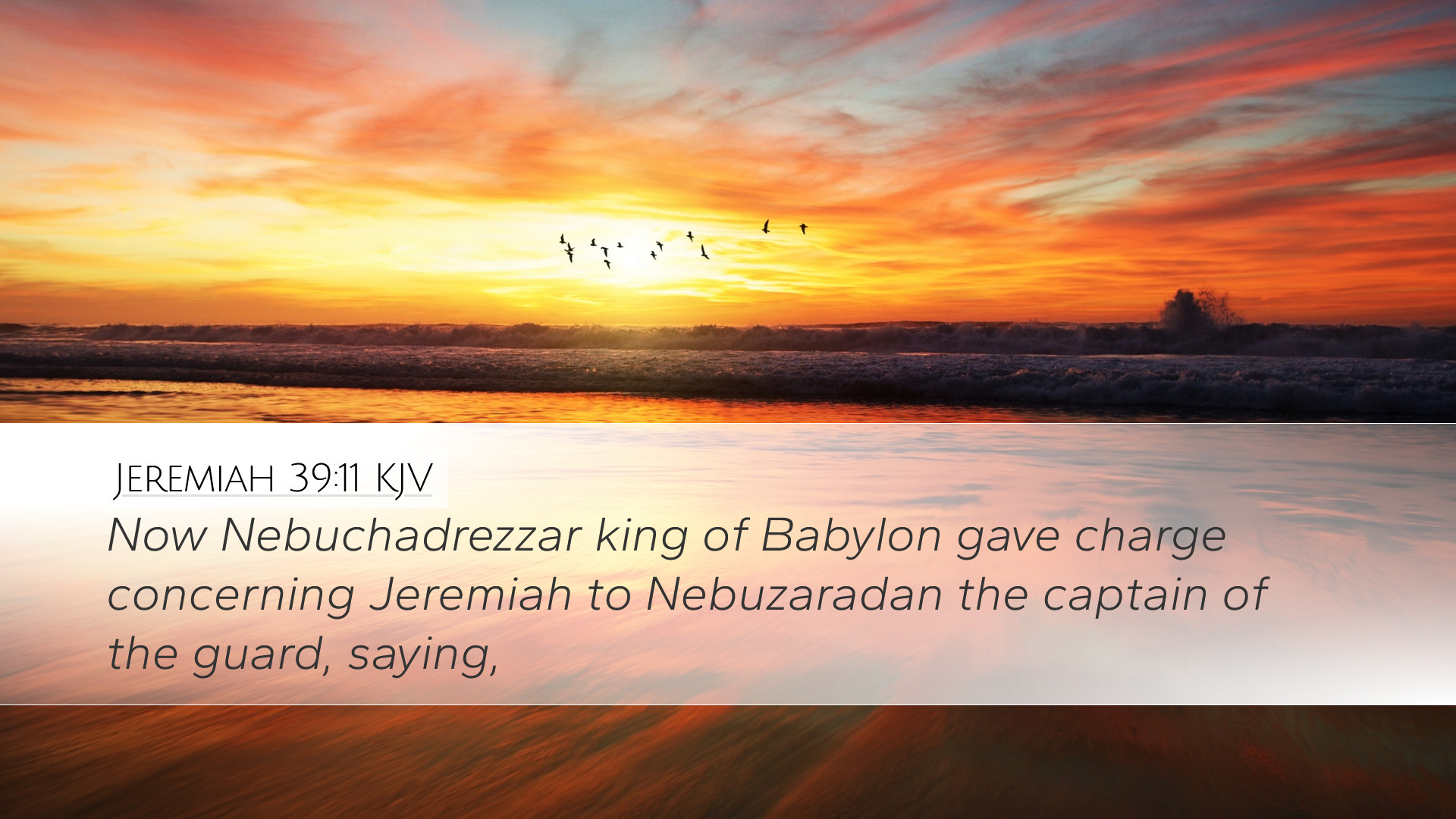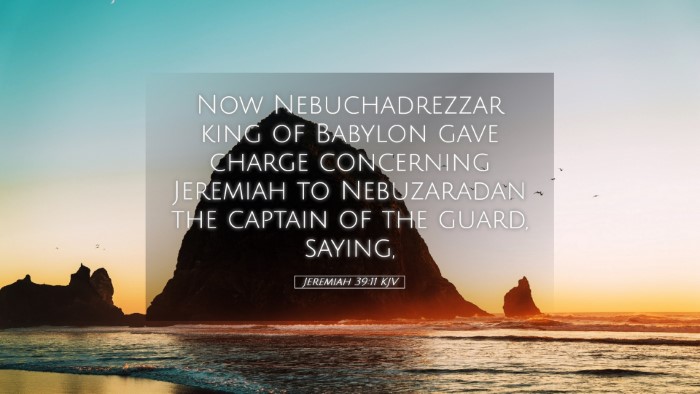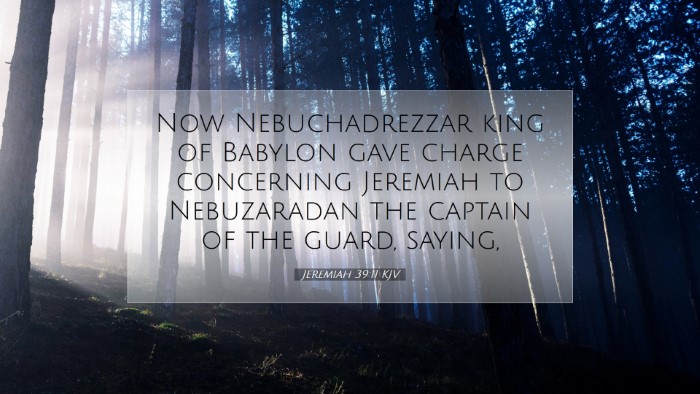Commentary on Jeremiah 39:11
Bible Verse: "Now Nebuchadnezzar king of Babylon gave charge concerning Jeremiah to Nebuzaradan the captain of the guard, saying," (Jeremiah 39:11, NKJV)
Introduction
This verse serves as a crucial turning point in the narrative of Jeremiah. It is an indication of God’s providence, illustrating how divine plans often intersect with historical events. The events surrounding the fall of Jerusalem and Jeremiah's role as a prophet emphasize the themes of judgment, mercy, and God's unwavering presence during times of turmoil.
Contextual Background
The Babylonian siege resulted in the capture of Jerusalem, leading to significant consequences for the inhabitants, particularly those who had been warned repeatedly by Jeremiah. His prophetic messages had foretold the destruction, yet his faith remained steadfast. The intervention of Nebuchadnezzar highlights the intersection of political power and prophetic authority, as both are under God's sovereign control.
The Role of Nebuchadnezzar
Understanding Nebuchadnezzar's role is vital for comprehending the narrative's dynamics. As the king of Babylon, he exemplifies the instrument of God’s judgment upon Judah. His instructions concerning Jeremiah reflect God’s grace amidst impending destruction:
- Prophetic Protection: Nebuchadnezzar’s specific command to Nebuzaradan signifies a protective intention towards Jeremiah. This brings to light how God's chosen servants are safeguarded even in dire circumstances.
- Divine Sovereignty: The fact that a pagan king would concern himself with a Hebrew prophet displays the overarching sovereignty of God in orchestrating events, demonstrating that God's plans transcend human understanding.
Insights from Commentators
Matthew Henry
Matthew Henry emphasizes the significance of God's favor towards Jeremiah. He notes that even in the midst of calamity, God’s hand is visible, directing the affairs of men. Henry argues that Nebuchadnezzar, although a conqueror, acts in response to God's decree, thus highlighting divine sovereignty. He observes:
"The king of Babylon, by a special providence, had a care for Jeremiah, even though his nation was being punished."
Albert Barnes
Albert Barnes offers a detailed exploration of God's protection over Jeremiah. He discusses how God ensured Jeremiah was treated with respect amid the destruction. Barnes points out that:
"The mention of Jeremiah by name in the orders of Nebuchadnezzar shows how particularly God watched over His faithful servant."
Barnes also elaborates on the inconsistency seen in human leaders who are nonetheless used for divine purposes, drawing a parallel to other biblical instances where God sovereignly appoints rulers to fulfill His plans.
Adam Clarke
Adam Clarke provides a cultural perspective on the verse, noting the implications of the Babylonian conquest on Jewish culture and religion. He argues that Nebuchadnezzar's orders reflect a broader understanding of mercy despite judgment:
"In his decree, we see the mercy of God that attends those who trust in Him, even amidst the direst circumstances."
Clarke’s commentary highlights the theological significance of God’s favor extending beyond immediate physical rescue to include spiritual preservation, signifying hope amidst despair.
Theological Implications
This verse informs readers regarding several theological concepts:
- Divine Providence: The orchestration of events by God serves as a reminder of His omnipotence and intimate involvement in human affairs.
- Prophetic Fulfillment: Jeremiah's life and ministry exemplify the fulfillment of God's word. Despite opposition and hardship, the truth proclaimed by prophets remains unchallenged in the divine plan.
- Hope During Turmoil: The gravity of Jerusalem's fall contrasts with the hope seen in God's protection of Jeremiah. This serves as an encouragement for believers facing trials, affirming that God remembers His promises.
Conclusion
Jeremiah 39:11 stands as a vital reminder of God's faithfulness and protection. Amidst the desolation and chaos experienced by the people of Judah, God’s favor rested upon His prophet. This verse invites theologians, pastors, and believers to reflect on the mysteries of divine providence, the assurance of God’s sovereignty, and the hope that can be found even in the direst of circumstances. It is a call to recognize that in our history, both personal and collective, God is at work, often through unexpected agents, reminding us of His unfailing presence.


